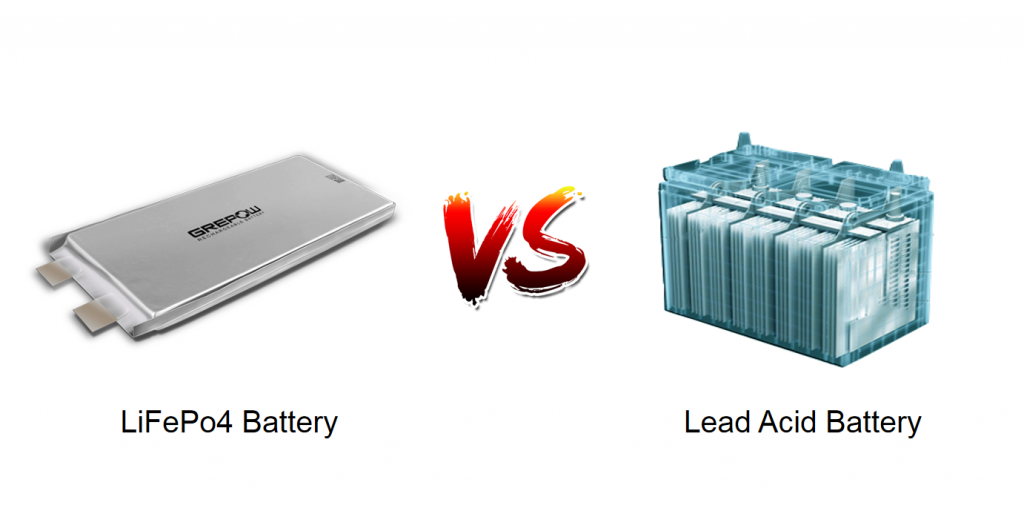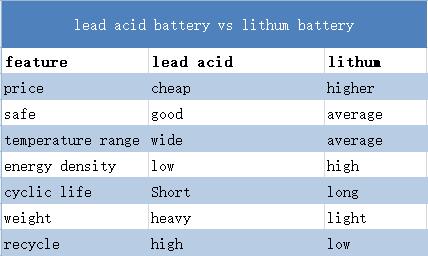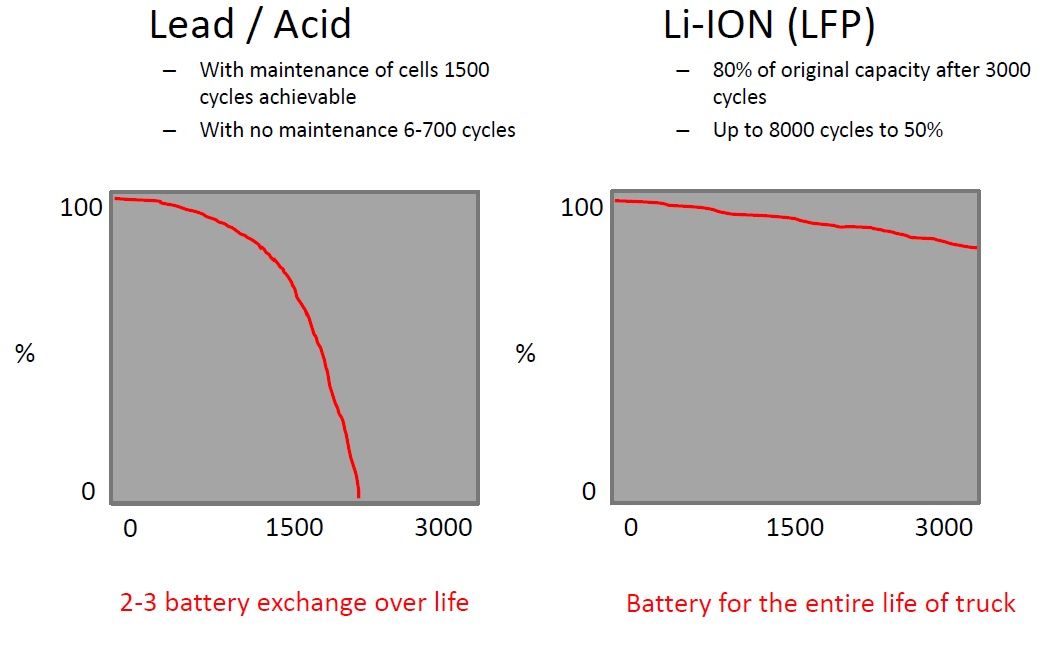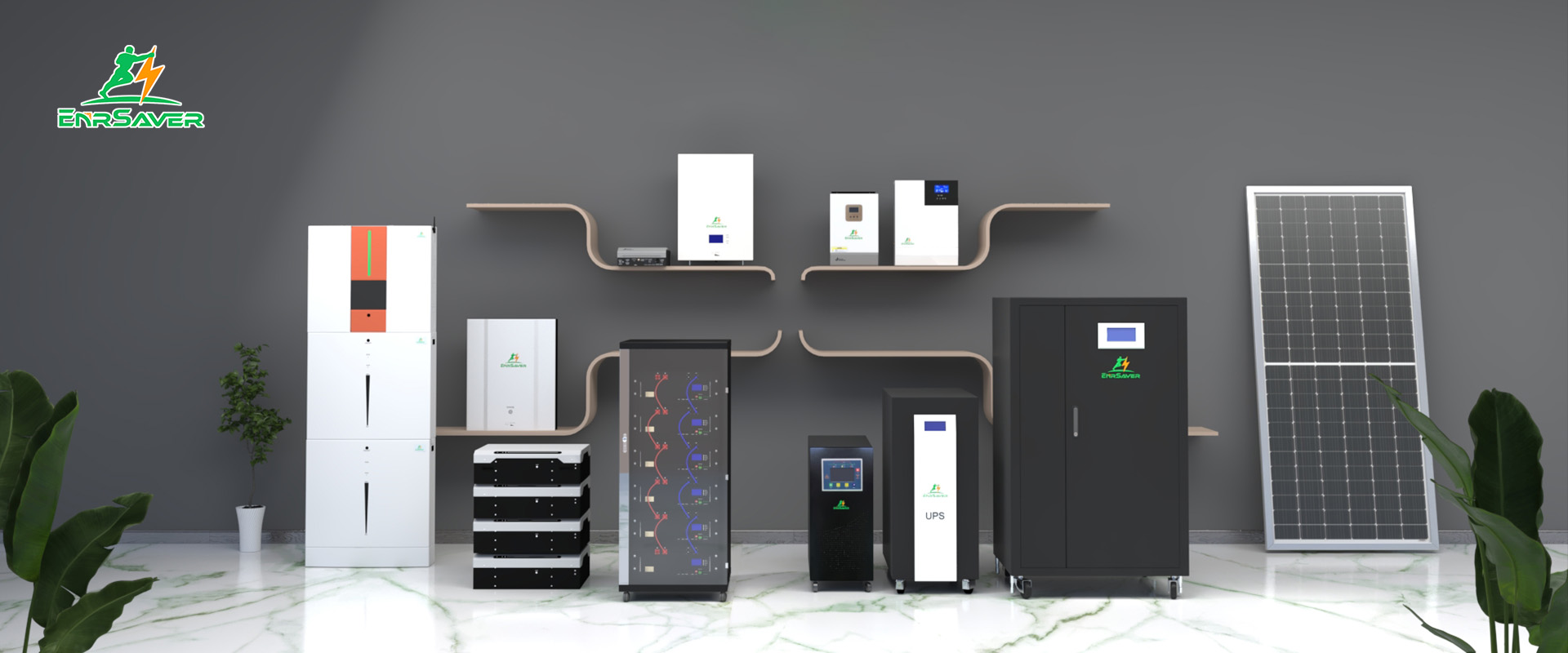The difference between lithium battery and lead-acid battery
The difference between lithium battery and lead-acid battery

Lithium batteries and lead-acid batteries are two different types of rechargeable batteries that have distinct characteristics and use cases. Here are some key differences between the two:

1. Chemistry:
Lithium batteries use lithium compounds as their active materials, while lead-acid batteries utilize lead plates and sulfuric acid electrolyte.
2. Energy density:
Lithium batteries have a significantly higher energy density than lead-acid batteries. This means they can store more energy in a smaller and lighter package, making them ideal for applications where weight and size are important factors.
3. Cycle life:
Lithium batteries generally have a longer cycle life compared to lead-acid batteries. They can withstand many more charge and discharge cycles before their capacity significantly degrades. In contrast, lead-acid batteries typically have a lower cycle life but may still be suitable for certain applications with less demanding requirements.

4. Charge efficiency:
Lithium batteries have higher charge efficiency, which means they can efficiently convert electrical energy during charging and hold onto it without significant losses. Lead-acid batteries have lower charge efficiency and may lose some energy as heat during the charging process.
5. Maintenance:
Lead-acid batteries often require periodic maintenance, including checking and topping up the electrolyte levels and cleaning the terminals. On the other hand, lithium batteries are generally maintenance-free, eliminating the need for regular maintenance tasks.
6. Self-discharge:
Lithium batteries have a lower self-discharge rate compared to lead-acid batteries. They can retain their charge for longer periods when not in use, reducing the need for frequent recharging.
7. Weight and size:
Lithium batteries are much lighter and more compact than lead-acid batteries with similar energy storage capacities. This makes them well-suited for portable devices and applications where weight savings are crucial.
8. Environmental impact:
Lithium batteries are considered more environmentally friendly than lead-acid batteries. Lead-acid batteries contain toxic materials such as lead and sulfuric acid, which require proper disposal and recycling processes to minimize environmental harm. In contrast, lithium batteries have a lower environmental impact and offer better potential for recycling and reuse.
9. Cost:
While the cost of lithium batteries has been decreasing over time, they are typically more expensive than lead-acid batteries upfront. However, their longer cycle life and higher energy density may result in a lower overall cost over the battery's lifespan, depending on the specific application.
The choice between lithium batteries and lead-acid batteries depends on factors such as energy requirements, weight restrictions, cycle life needs, cost considerations, and environmental impact. Lithium batteries are often preferred for applications that demand high energy density, lightweight design, long cycle life, and minimal maintenance. Lead-acid batteries are still commonly used in certain applications where cost-effectiveness and robustness are prioritized.
You can see why the most commonly ask question we get asked here. It's also the most complicated and personal question to answer.
Grab your electric bill, go to our calculator and find the answers for your home.
I hope this was helpful. If so, give us a like a share and check out more of our videos and subscribe to our channel and all the store.
So we can notify you and more videos are available. We've been making renewable doable since 1999.

